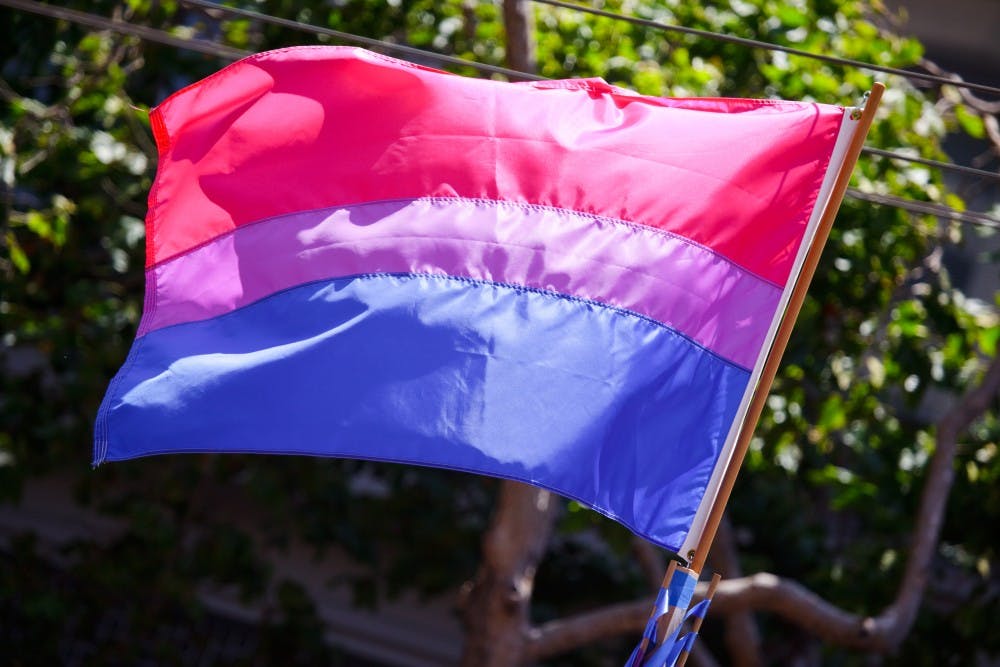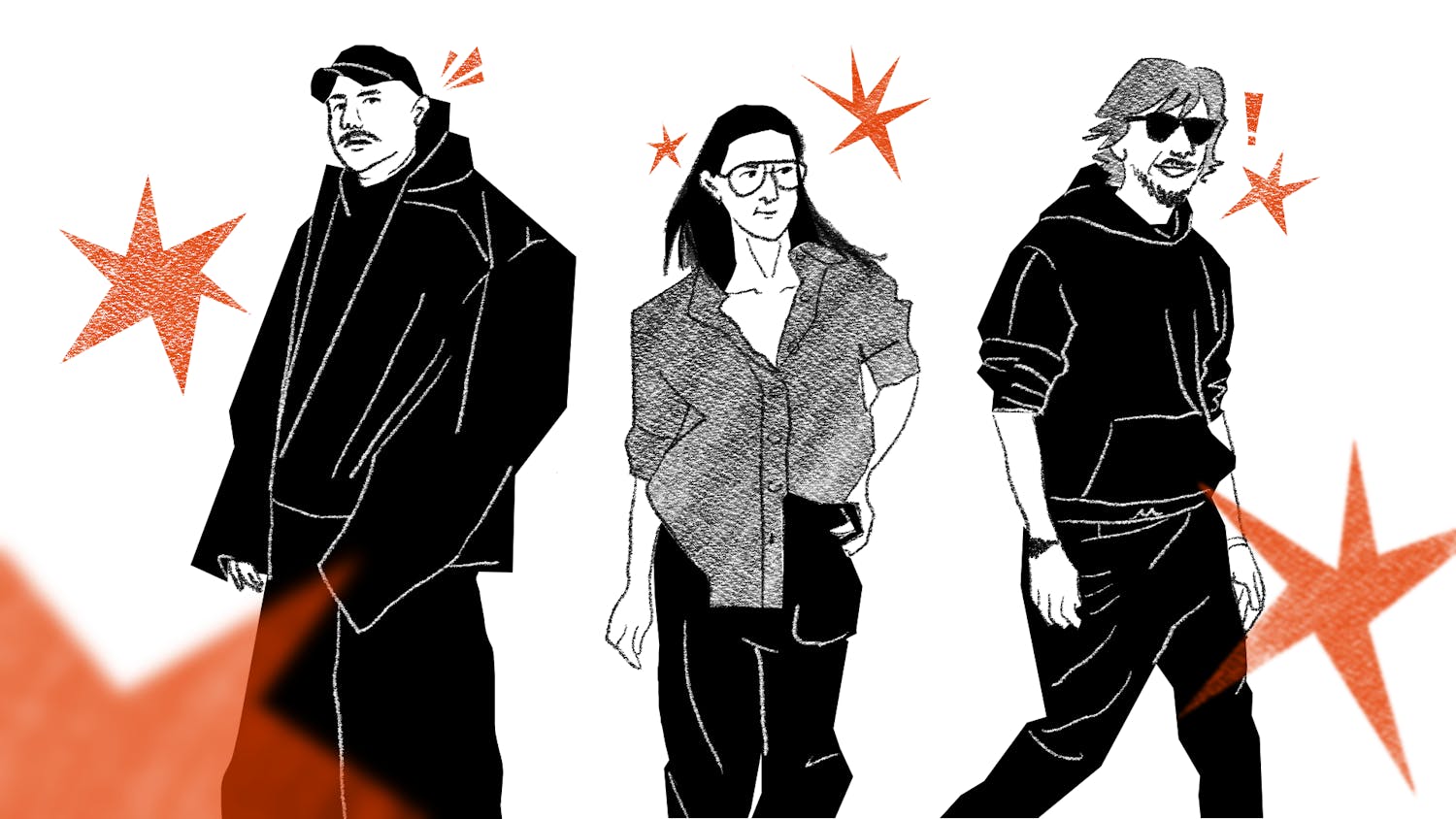Bisexual Day of Visibility has been celebrating bisexual representation since 1999 and is officially on September 23rd. Street reached out to members of Penn's bisexual community to see what bi visibility and bi pride meant to them. Here are some of their personal and powerful experiences.
Rio Dennis (W'19)
“Oh, you’re bisexual? Does that mean you’d be interested in a threesome?” “So, which do you prefer?” “Are you sure you’re not just experimenting?”
I’ve heard it all before. Straight, cis males who become increasingly attracted to me once I explain that I am bisexual. Or lesbians who don’t believe I can really be attracted to more than one gender and must just be experimenting or afraid to “fully come out.”
Since becoming openly bisexual, I've been subjected to so many questions about my personal life by people who have no business asking me. So many people don’t understand the concept of sexuality being a spectrum and the idea that someone can be attracted to more than one gender confuses them (and yes, there are more than two genders, but that is another discussion for another day).
So, first, I would like to say: my sexuality is NOT your fetish! I did not struggle with coming to terms with my orientation, with coming out to my family, and with having to come out on a constant basis just to tell you stories about my personal life to turn you on. So, no, you cannot hear stories about what we’re doing. And no, you cannot join us.
Second, there are people within the LGBT community with a sense of “bi phobia” which, in turn, separates the queer community rather than uniting us. Sexuality isn’t black and white, it’s all the beautiful shades of the rainbow in between. We should be respecting each others’ choices and continuing to keep LGBT spaces open and non-judgmental.
Identifying openly as bisexual empowers me, and I strive every day to empower others to be their true selves. It’s not for you to fetishize or doubt or belittle. Bisexual visibility day is about showing people we exist, we are not ashamed, and we are here to stay.
Brennan Burns (C'20) she/her
I feel like it should be easy to write something about bi visibility, about how it’s important, and how I feel that it affected my life, but instead, I just spent the past week or so questioning my sexual orientation once again. It’s actually kind of fascinating; I seem to have an amazing ability to spend years thinking about something that I feel should be rather obvious without coming to any lasting conclusion about my sexual orientation. I mean, I’ll give myself some credit here, I definitely have a better understanding of my sexual orientation (and gender identity) now than I did when I was 14 and still thought that I was a straight man, but after five odd years of repeatedly questioning my sexual orientation, it’s almost starting to feel like I’ll never really figure it out.
Yet, as I write this I still definitely know that I’m attracted to all genders—I’ve just been having a hard time figuring out what term to refer to myself. Either of the terms “pansexual” or “bisexual” would technically describe me, but I can’t decide whether I prefer one term over the other, and for some reason I feel as though I have to choose between them.
At the end of the day, what I’m really trying to say is that bi pride and visibility is important. It’s helpful for bi people who seek a friendly community in an all too unfriendly world. I think it’s helpful for society, in the sense that it helps promote acceptance. And its helpful for those that are questioning, because it’s nice to be around people who are confident in their identities when you can’t make heads or tails of your own.
Anonymous
It is NOT just a phase. Until college, I didn’t know that I could also be interested in men. I had—after all—grown up in a Protestant bubble, at once non–inclusive and demeaning of sexual ‘deviations.’ But when a random boy kissed me at a college party, I realized that it hadn’t felt any different from a girl. Fast forward to senior year (post a [quick–and–shitty] relationship with a boy and copious encounters with women), and I still haven’t figured out what truly sexually appeals to me; and the social alienation particular to the bisexual community plays a role in that.
The world of bisexuality—that is, the ability to be romantically or sexually attracted to more than one gender— is entrenched in invisibility. Despite making up the largest self–identified portion of the LGBT community, bisexuals lack recognition from both the straight and (in a gravely ironic twist) from the gay and lesbian communities—a true “lose–lose” situation. My close friends often recur to “you’re just confused” or “just come out already.” The charge in the quasi–liberal narrative is that bisexuality is just “a phase,” a gay man’s first step to coming out of the closet or perhaps a short stint at experimentation, all of which are assumptions that have simply made it harder to form conclusions about who I am.
Angela Huang (W'20)
If there were more bi visibility when I was growing up, I would have understood my sexuality instead of, like, inwardly hating myself for years. I wasn’t straight and I wasn’t gay and I had no idea there was a blob of middle ground between those binaries. I was always like “boys are hot and so are girls (and hell, everyone in between so what am I?)". But sexuality is not as black and white (insert rainbow flag emoji!) as homo/hetero. Bi Visibility Day is so important because we queers have to stick together to combat bi phobia and bi erasure. Also, being bi is dope: we’ve got Frank Ocean and Angelina Jolie.







